Loyalty was crucial to the success of the Roman military. The ability of Roman generals to gain and keep the unwavering loyalty of their soldiers was a key factor in the growth and survival of the Roman Empire.
Roman generals used various methods to earn this loyalty, such as:
- Showing bravery and leadership on the battlefield
- Making changes to the army’s structure
- Giving rewards like loot, land, and cash bonuses
- Creating networks of support that went beyond fighting
- Maintaining strict discipline and training to build unity
These tactics formed a strong connection between leaders and soldiers, ensuring dedication during both peaceful and wartime.
How Roman Generals Won Loyalty: Leadership Lessons from the Ancient World provides valuable lessons not only about ancient military leadership but also about timeless principles that can be applied by today’s leaders in any field. By learning these techniques, you can gain practical skills for earning loyalty and trust within your own teams.
The Role of Personal Leadership and Leading by Example
Roman generals understood that personal leadership was more than just issuing commands; it required embodying the qualities they expected from their soldiers. Demonstrating exceptional courage and discipline on the battlefield, they became living examples of valor and resilience. This direct participation in combat was a powerful motivator, encouraging troops to mirror their commanders’ steadfastness.
Consider Julius Caesar during the Gallic Wars. Caesar often placed himself at the front lines, sharing dangers with his men rather than commanding from a distant vantage point. His visible bravery increased troop morale and reinforced their trust in his leadership. Soldiers were not merely fighting for an abstract cause but for a leader who shared their risks and hardships.
The impact of a general’s personal conduct extended beyond battlefield bravery. Generals who maintained discipline, fairness, and integrity cultivated strong unit cohesion. For instance, Scipio Africanus, known for his pivotal role in the Second Punic War where he defeated Hannibal, exemplified this principle. His leadership not only changed the course of history but also established Rome’s dominance over Carthage, showcasing how personal conduct can have far-reaching consequences.
Marcus Antonius (Mark Antony) also illustrates this principle; he was known to personally engage with his soldiers, listening to their concerns and rewarding loyalty, which solidified their commitment. Trust-building thrived through direct engagement—face-to-face interactions where leaders demonstrated empathy and genuine concern. These moments created a bond beyond military hierarchy, fostering loyalty rooted in respect rather than fear or obligation.
This blend of battlefield valor, ethical conduct, and close connection set Roman generals apart as leaders who won unwavering loyalty through example rather than mere authority. Such leadership principles were not confined to military realms but also permeated into other aspects of Roman life including art and culture, reflecting a society that valued strength, integrity, and personal connection in all spheres of life.
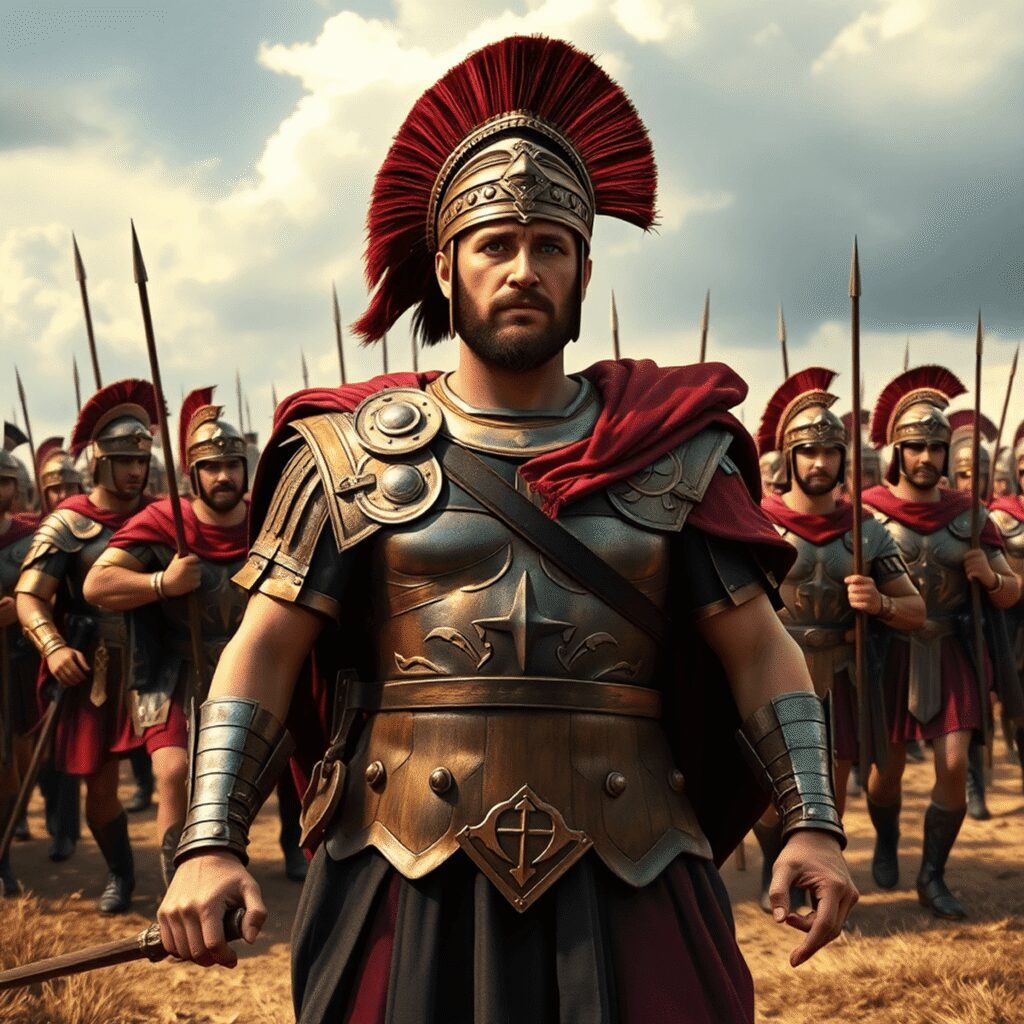
The Impact of the Marian Reforms on Loyalty
The Marian reforms, introduced by Gaius Marius around 107 BCE, marked a turning point in Roman military organization. Before these reforms, the Roman army primarily consisted of a citizen militia—land-owning farmers who served temporarily during campaigns. This model limited the size and flexibility of Rome’s forces and tied soldiers’ loyalty to the state and their property.
Marius opened the ranks to landless citizens, individuals without property who previously had no military role. This shift created a professional standing army, where soldiers enlisted for extended periods and relied on their generals for pay, equipment, and rewards.
Changes brought by the Marian reforms:
- Standardized equipment supplied at state expense, reducing reliance on personal wealth.
- Longer enlistment terms, which fostered continuous training and discipline.
- Soldiers became career professionals rather than seasonal levies.
- Generals took responsibility for soldiers’ well-being, including pensions or land grants after service.
This new structure fundamentally altered the nature of soldier loyalty. Since many recruits had no land or wealth to tie them to Rome itself, their allegiance shifted toward the generals who led, equipped, and rewarded them. Loyalty became more personal and less institutional, creating powerful bonds between commanders and troops.
Generals like Julius Caesar leveraged this system effectively, cultivating fierce devotion among their legions through direct care and tangible benefits. The Marian reforms laid the groundwork for armies shaped less by civic duty and more by personal loyalty—an element that both empowered generals and contributed to political complexities in late Republican Rome.
Understanding this shift is crucial for grasping how leadership adapted to new social realities while maintaining military effectiveness through strong personal ties between leaders and soldiers. This transition also reflects broader changes in the structure of power in the Roman Republic, which existed from 509 to 27 BCE. The relationship between military leaders and their troops during this period can be likened to certain dynamics observed in contemporary role-playing scenarios such as those experienced in Second Life, where individuals immerse themselves in different roles and relationships.
The influence of these reforms extended beyond the military sphere, impacting the rise and fall of the Roman Empire as well as shaping the philosophical landscape with the rise of Stoicism during this period.
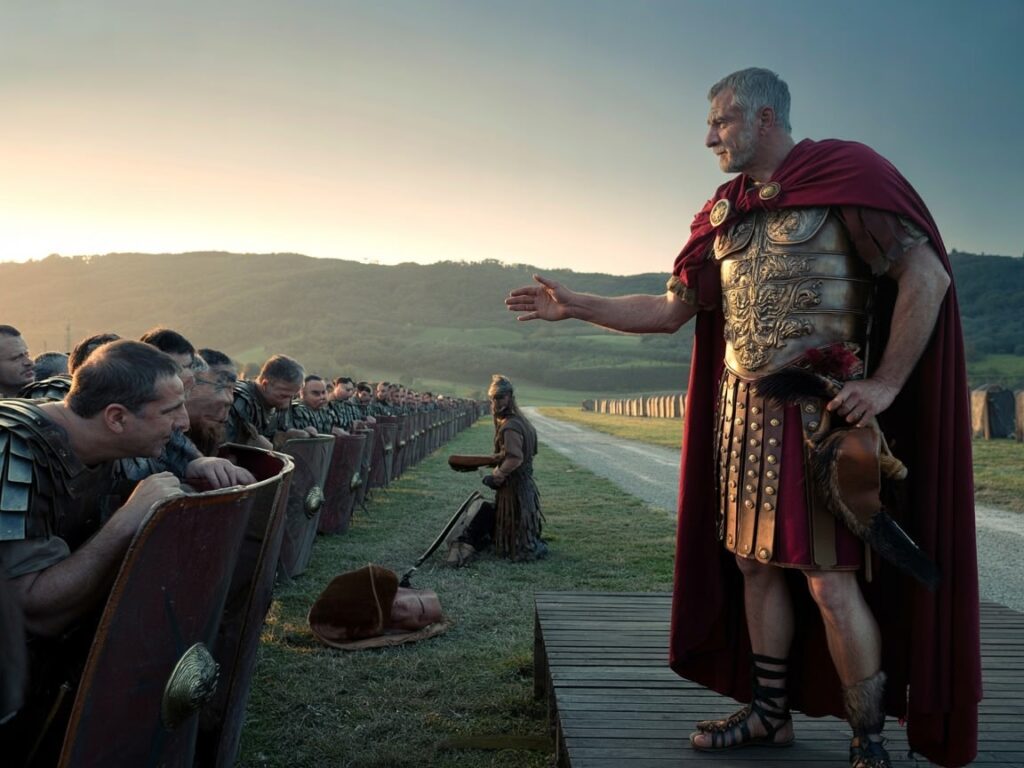
Reward Systems that Cemented Loyalty
Roman generals understood the power of a well-structured rewards system to secure unwavering loyalty from their soldiers. The incentives offered went beyond mere promises; they were tangible benefits that directly impacted a soldier’s life and future.
Types of Rewards Offered
- Spoils of War: Soldiers received a share of loot captured during campaigns—valuable goods, precious metals, and slaves. This immediate tangible benefit motivated troops to fight vigorously, knowing victory meant personal gain.
- Land Grants: Upon retirement, many soldiers were awarded parcels of land. This reward had profound significance, especially for those who enlisted as landless citizens after the Marian reforms. Land ownership provided economic security and social status, binding veterans to their general’s legacy.
- Monetary Bonuses: Exceptional service and acts of bravery often resulted in cash bonuses or donatives. These payments reinforced meritocracy within the ranks, encouraging soldiers to excel.
Impact on Soldier Motivation and Loyalty
This reward system did more than just incentivize performance. It cultivated personal loyalty to commanders who controlled these gifts and ensured their distribution. Soldiers came to view their generals as providers of security and prosperity, not just military leaders. The promise of future rewards kept morale high even during difficult campaigns.
The practice also created a reciprocal relationship: generals relied on loyal troops for success, while soldiers depended on their leader’s ability to deliver rewards. This dynamic strengthened unit cohesion and maintained discipline, crucial elements in the effectiveness of Roman armies.
Understanding these systems offers valuable insights into How Roman Generals Won Loyalty: Leadership Lessons from the Ancient World. Rewarding contributions fairly and visibly remains a timeless leadership principle that resonates beyond the battlefield.
Moreover, the influence of Roman architecture, as seen in their masterpieces of ancient engineering, played a significant role in cementing loyalty among soldiers. The grandeur of structures built as a result of these reward systems served as a constant reminder of their general’s power and generosity.
Additionally, the principles derived from Roman law, which has shaped modern legal systems, reflect the structured nature of these reward systems. The laws governing land grants and monetary bonuses were rooted in this legal framework, further solidifying the bond between soldiers and their generals.
Lastly, the incredible engineering feats achieved by Romans not only transformed their military capabilities but also enhanced the effectiveness of these reward systems. By ensuring effective governance and facilitating cultural exchange through infrastructure development, these engineering marvels contributed significantly to maintaining soldier loyalty and motivation.
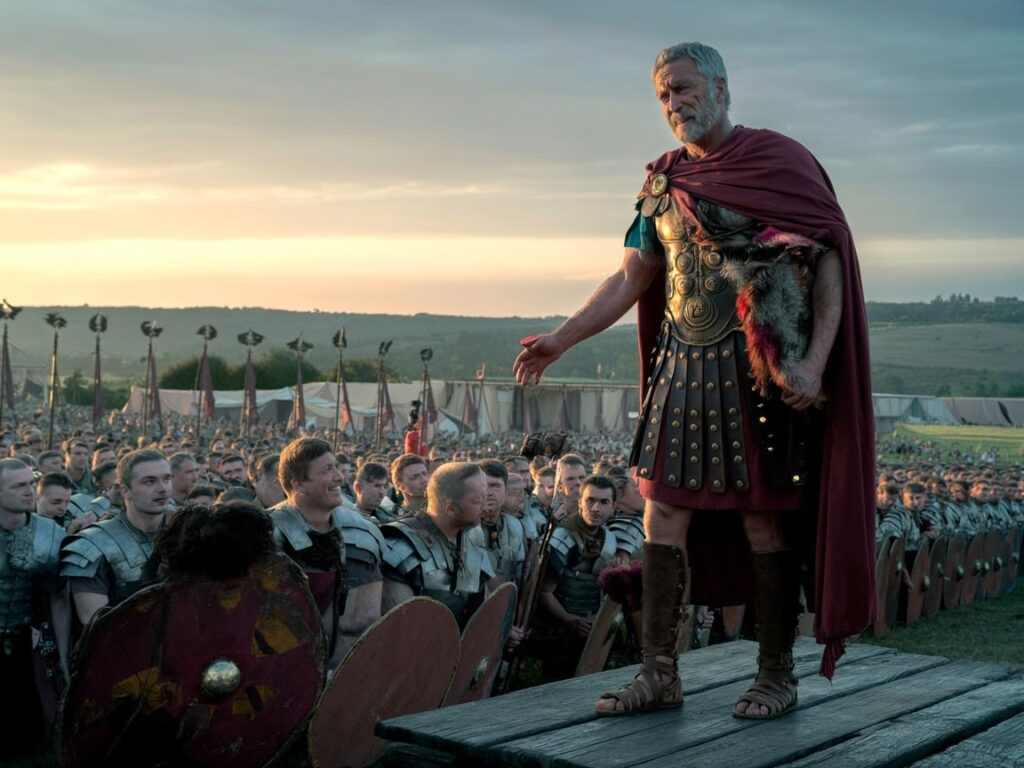
Stability and Protection as Foundations for Loyalty
Roman generals understood that troop welfare was not just a moral obligation but a strategic necessity. The safety and well-being of soldiers directly influenced their effectiveness and willingness to remain loyal. Generals took deliberate steps to create an environment where soldiers could focus on their duties without constant fear for their lives beyond the battlefield.
During military campaigns, commanders prioritized:
- Safe encampments: Camps were carefully chosen and fortified to protect soldiers from surprise attacks or harsh weather.
- Adequate supplies: Ensuring consistent food, water, and medical care reduced stress and maintained physical readiness.
- Rest periods: Regular breaks allowed soldiers to recover, preventing exhaustion and boosting morale.
Moreover, understanding the psychological aspect of warfare was crucial. This is where the principles outlined in the Combat and Operational Stress Control manual come into play, emphasizing the importance of mental well-being in maintaining operational effectiveness.
In peacetime, the focus on stability continued with measures such as:
- Providing veterans with land or pensions, securing their futures.
- Maintaining discipline in garrison towns to prevent unnecessary hardships or abuses.
- Offering legal protections under the patronage of their generals.
These efforts fostered deep trust. Soldiers recognized that their leaders genuinely cared about their survival and future prospects, which strengthened loyalty beyond mere obedience. Safety created a psychological foundation where commitment to the cause grew naturally because men felt protected and valued.
The link between stability and loyalty was clear: when soldiers knew their leaders would shield them from harm and hardship, they were more willing to endure the rigors of war and follow orders without hesitation. This human-centered approach distinguished Roman generals who commanded respect not just through power but through genuine concern for those under their command.
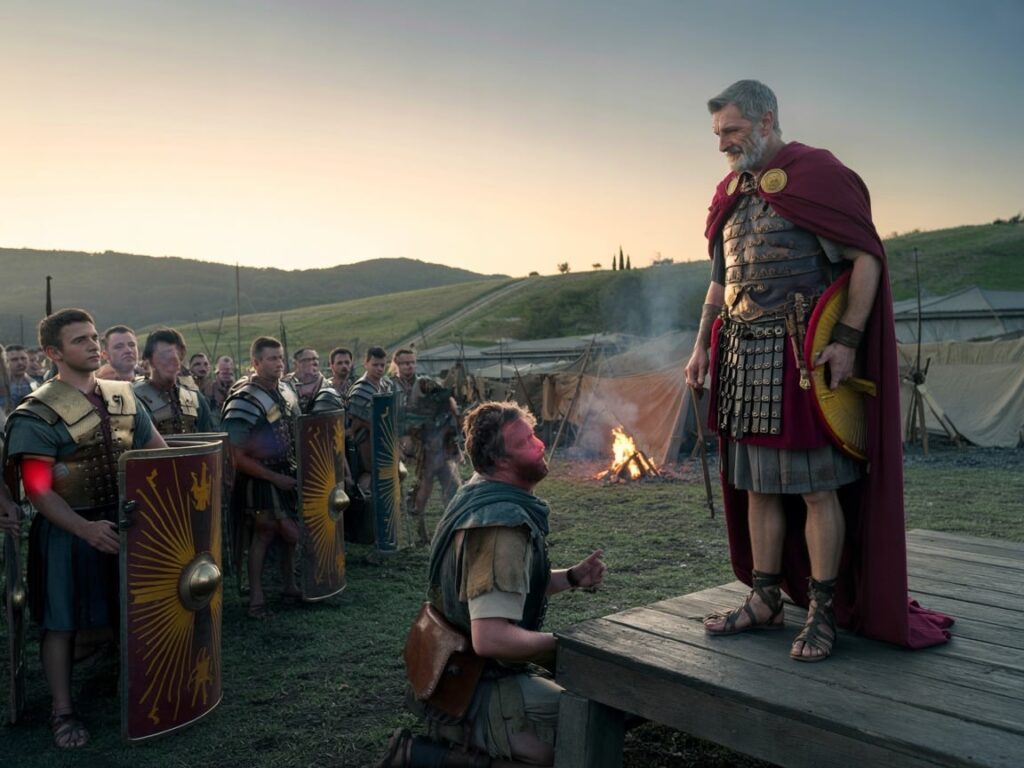
Patronage Networks Beyond the Battlefield
Roman generals extended their influence well beyond the battlefield through carefully cultivated patronage networks. These networks were crucial in securing long-term loyalty from soldiers by addressing needs that went far beyond military service.
1. Legal Protection
Soldiers often found themselves vulnerable to legal and social challenges once their active duty ended. Generals acted as patrons who could provide legal support or intervene on behalf of their veterans, ensuring protection within the civic framework of Roman society. This was particularly significant considering the complex legal landscape shaped by instruments like the Twelve Tables, which codified Roman law and provided some level of protection for citizens. Such intervention fostered a sense of security and gratitude that deepened loyalty.
2. Social Advancement
Patronage was a pathway to upward mobility. Generals used their political power to help favored soldiers gain citizenship rights, land ownership, or government positions. Such opportunities created strong personal bonds, as soldiers recognized their leaders as instrumental in improving their social standing. This aspect of patronage also reflected the broader social dynamics in Rome, where one’s legal status often depended on relationships with male figures, as seen in the legal status of Roman women.
3. Ongoing Support Off the Battlefield
Loyalty wasn’t limited to wartime. Generals maintained relationships with veterans through ongoing assistance—whether through facilitating economic opportunities or social connections within Roman communities. For instance, agriculture played a significant role in Roman economic growth, and generals often helped veterans secure land for farming. This continuous support reinforced a reciprocal relationship between leader and follower.
These patronage networks created a web of mutual obligations that tied soldiers closely to their commanders. The personalized attention and tangible benefits provided by generals established a durable foundation for loyalty, ensuring soldiers remained committed not just during campaigns but throughout their lives.
Roman patronage was an integral leadership strategy, blending military command with social influence to maintain control and inspire devotion at every level of soldier life.
The complexities of these patronage networks also had significant implications for the legal and economic aspects of Roman society.
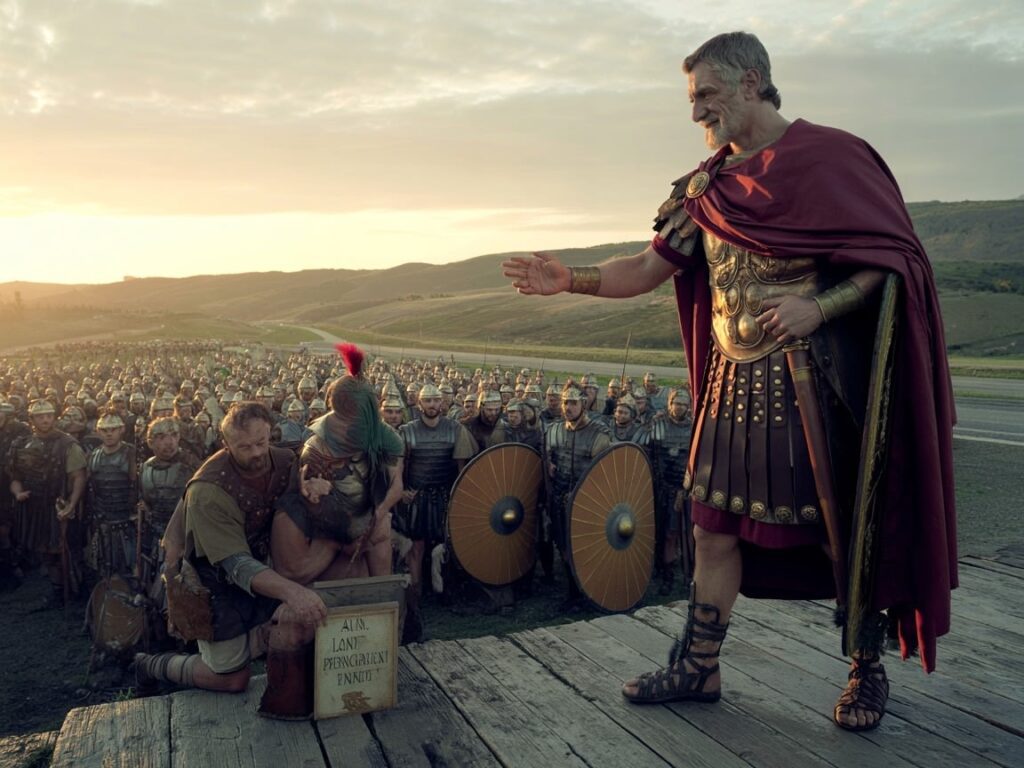
Discipline and Rigorous Training Cultivating Unit Cohesion
Military discipline formed the backbone of the Roman army’s effectiveness. Roman generals understood that strict discipline was essential not only to maintain order but to instill a strong sense of pride and professionalism among their soldiers. This discipline was enforced through clear rules, consistent consequences for breaches, and a leadership style that demanded accountability at every level.
Training regimes were intense and comprehensive, focusing on physical endurance, weapons proficiency, and tactical drills. Soldiers practiced formations like the famous testudo (tortoise) shield wall repeatedly until executing it became second nature. The repetitive nature of these exercises built muscle memory, ensuring units could respond swiftly and cohesively in battle.
The impact of this rigorous training extended beyond physical preparedness. As soldiers trained together day after day, they developed interpersonal bonds forged through shared hardship and mutual reliance. These bonds created strong unit cohesion—a critical factor in battlefield success—because troops trusted each other implicitly. Loyalty extended horizontally across the ranks as well as vertically toward commanders.
Competent leadership played a pivotal role in sustaining this environment. Generals who maintained high standards of discipline without resorting to cruelty earned respect rather than fear. Their ability to balance firmness with fairness encouraged soldiers to buy into the military culture fully.
Roman generals, through disciplined training and leadership, cultivated a force where each soldier felt part of a professional and respected unit. This collective identity reinforced loyalty not only toward fellow soldiers but also toward their leaders who embodied these standards. The lessons from How Roman Generals Won Loyalty: Leadership Lessons from the Ancient World remain relevant for understanding how discipline shapes dedication in any organized group.
These principles of discipline and rigorous training can be seen reflected in various aspects of Exploring Ancient Rome: A Journey Through Time, which highlight the significant impact of military structure on Rome’s evolution into one of the most powerful empires in history.
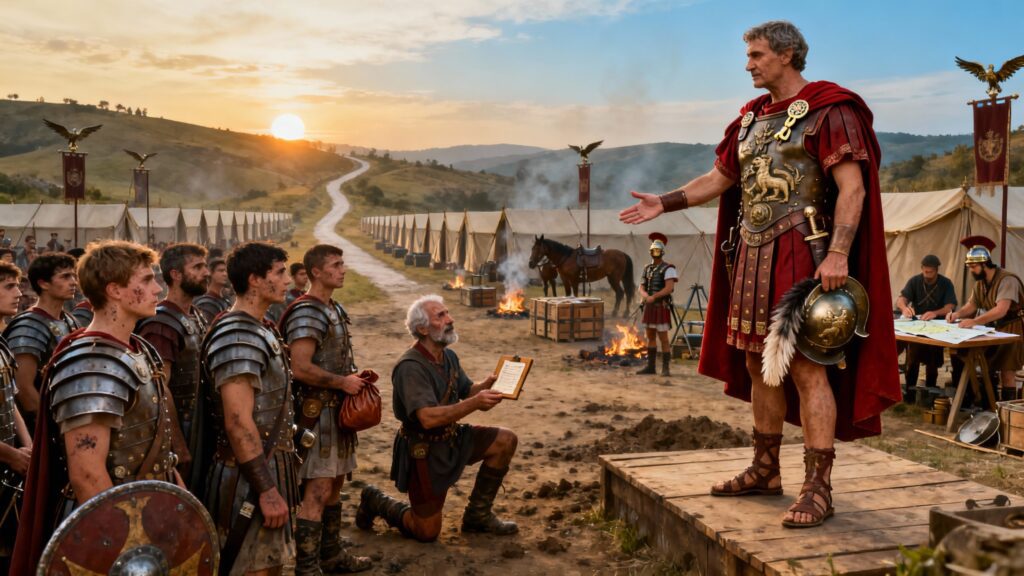
Leadership Lessons from Roman Generals for Modern Leaders
Studying leadership lessons from Roman generals reveals timeless principles relevant to today’s leaders across industries:
- Lead by example. Demonstrate the behaviors and values you expect from your team. Personal courage, discipline, and integrity inspire loyalty more than words alone.
- Build trust through direct engagement. Regular interaction with your team fosters connection and opens channels for honest communication.
- Offer meaningful rewards. Recognize achievements tangibly and fairly, reinforcing motivation and commitment.
- Create stability and protection. Prioritize the well-being of those you lead to cultivate a secure environment that encourages dedication.
- Develop networks beyond formal roles. Supporting team members’ growth outside immediate tasks strengthens enduring loyalty.
- Maintain rigorous standards combined with empathy. Discipline paired with genuine care builds professionalism without sacrificing morale.
Roman generals understood loyalty as a complex, multifaceted dynamic. Applying these insights helps modern leaders foster engaged, committed teams capable of sustained success.
The principles of leadership can also be seen in the birth of the Roman Republic, which marked a significant shift in governance and political structures that still resonate today. Furthermore, the ancient Roman religion played a crucial role in shaping their identity and societal norms, which can provide valuable insights into understanding team dynamics and cultural influences in modern leadership.
Additionally, the Roman roads symbolize the importance of creating stable pathways for growth and development within an organization. These roads not only maintained but also expanded the empire, much like how effective leadership can drive organizational success.
Moreover, understanding the influence of Roman mythology on modern culture can offer leaders a broader perspective on how narratives shape beliefs and values within teams. Lastly, exploring the duality of gladiators as heroes or victims in Roman society may provide leaders with a nuanced understanding of resilience and vulnerability in their team members, fostering a more empathetic leadership approach.
Incorporating elements of ethical leadership into these lessons can further enhance their effectiveness by promoting transparency and accountability within teams. Additionally, embracing concepts from recent research on leadership styles can provide modern leaders with a more comprehensive toolkit for navigating the complexities of today’s organizational landscapes.
Conclusion
The leadership strategies used by Roman generals still have valuable lessons for us today. How Roman Generals Won Loyalty: Leadership Lessons from the Ancient World teaches you that:
- Leading by example builds respect and inspires commitment.
- Rewarding performance fairly motivates continued excellence.
- Building trust through genuine care strengthens long-term loyalty.
These principles encourage you to think about your own leadership style. Whether you’re managing a team, guiding a project, or leading an organization, these lessons can help you win and maintain loyalty. The wisdom of ancient leaders shows us that success begins with genuine connections, clear incentives, and consistent support. By applying these principles in your professional life, you can create a foundation of trust and dedication that goes beyond short-term goals.
FAQs (Frequently Asked Questions)
What strategies did Roman generals use to secure and maintain the loyalty of their troops?
Roman generals employed a variety of strategies to win and sustain troop loyalty, including demonstrating personal leadership by leading courageously on the battlefield, implementing reward systems like spoils of war and land grants, prioritizing troop welfare for stability and protection, establishing patronage networks for long-term support, and enforcing discipline through rigorous training to foster unit cohesion.
How did personal leadership and leading by example influence soldier loyalty in ancient Rome?
Personal leadership played a crucial role as Roman generals showcased exceptional courage and discipline directly on the battlefield. This behavior inspired soldiers, boosted morale, built trust, and strengthened unit cohesion. Leaders’ direct engagement with troops fostered deep loyalty and commitment among soldiers.
What was the impact of the Marian reforms on soldier loyalty in the Roman army?
The Marian reforms transformed the Roman military from a citizen militia to a professional standing army by recruiting landless citizens. This shift created a system where soldiers developed strong personal loyalty to their individual generals, as their service became more professionalized and closely tied to their commanders’ leadership and rewards.
How did reward systems contribute to cementing loyalty among Roman soldiers?
Roman generals offered tangible incentives such as shares of spoils from conquered lands, land grants upon retirement, and monetary bonuses for exceptional service. These rewards motivated soldiers to perform better and fostered a sense of personal loyalty toward their commanders who ensured these benefits.
In what ways did patronage networks extend loyalty beyond the battlefield in ancient Rome?
Patronage networks provided soldiers with legal protections, opportunities for social advancement, and ongoing support off the battlefield. By securing these benefits, Roman generals built enduring bonds with their troops that extended beyond immediate military campaigns, ensuring long-term loyalty.
What leadership lessons from Roman generals are applicable to modern leaders seeking to build loyalty?
Modern leaders can learn from Roman generals the importance of leading by example with integrity and courage, rewarding performance fairly, prioritizing team welfare to build trust, fostering strong interpersonal bonds through disciplined training or development programs, and establishing supportive networks that encourage long-term commitment among team members.

